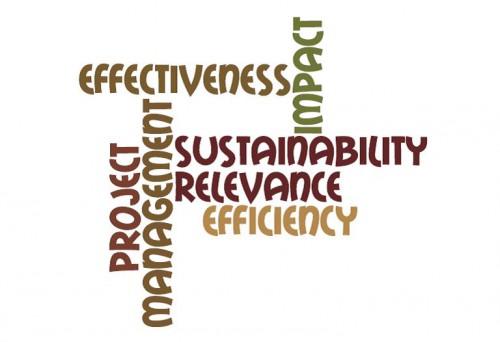17th November 2014 Singapore
Prosperity Fund Project Evaluations in Indonesia
Last month, I made a trip over to Jakarta to join in the evaluation of two Prosperity Fund projects that ran from 2011 to 2013.
Aside from the perpetual traffic jams, this visit was extremely enjoyable for two very important reasons. Firstly, this was a perfect opportunity for me to see and hear the impact of our projects, directly from their beneficiaries. Secondly, because it is always nice to catch up with old acquaintances to find out how they have progressed since our initial cooperation.
The subjects of our scrutiny
My colleague, Steve Price (from the programme team in London) and I looked at two separate sets of projects for this evaluation. The first project we looked at aimed to unlock the potential for Energy Efficiency investment in Indonesia by building capacity and support for the Energy Service Company and Investment Grade energy Audit business model with government, industry and financial institutions.
The second pushed for greater transparency in government procurement, by making it simple for the public in Indonesia to analyse electronic procurement data and identify suspicious procurement activities.
As part of the evaluation, Steve and I conducted a series of interviews with the project’s beneficiaries, implementer and other key stakeholders in the British Embassy of Jakarta. We then looked at how these projects were managed, and evaluated these projects against the REESI criteria of Relevance, Effectiveness, Efficiency, Sustainability and Impact.
Once you get past the initial jumble of words, these evaluations are a helpful exercise as they provide a relatively light-touch yet comprehensive way to flesh out the impact our projects are continuing to make.
You can read a summary of the two evaluations here, as well as further evaluation summaries done elsewhere in the world. These summaries are publicly available as part of the UK government’s Open Government Partnership (OGP) Action Plan and the FCO’s commitment to bringing our Official Development Assistance (ODA) up to the standards of the International Aid Transparency Initiative (IATI).
What these projects told us
What struck me was that while both projects in themselves have made incremental progress, the potential for larger, longer-term impact stem mainly from the opportunities for engagement that the projects create. We have found that this benefit can be maximised by working on projects with strong government support and building on shared priorities.
In addition to the impact that these projects are making to the development agenda in Indonesia, it is heartening to see the projects that we seeded attract further funding. That, in my mind, is a validation of their worth and a positive indication of their future sustainability.
Are you interested to know more? Or do you have views to share? Do get in touch via the comments box below!
